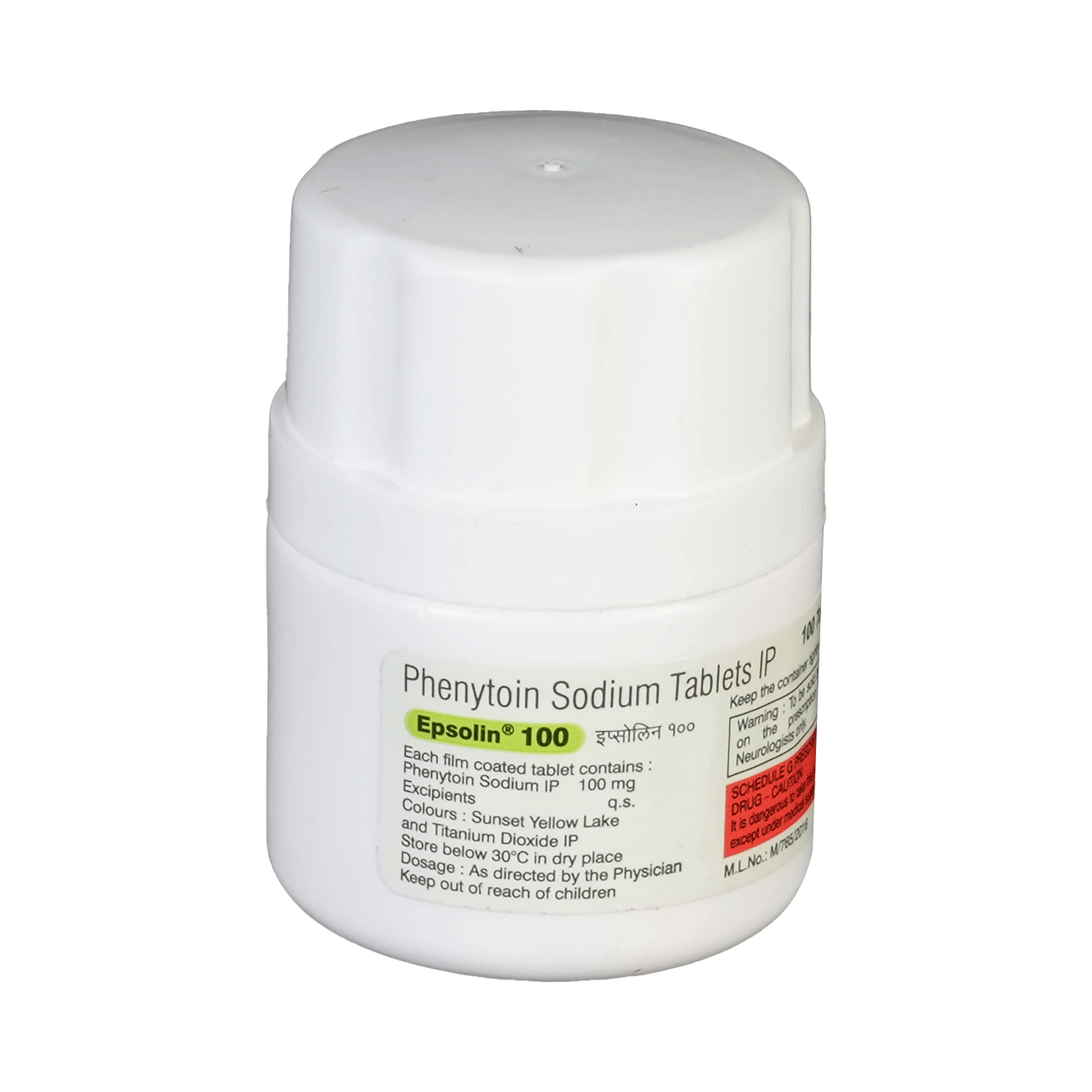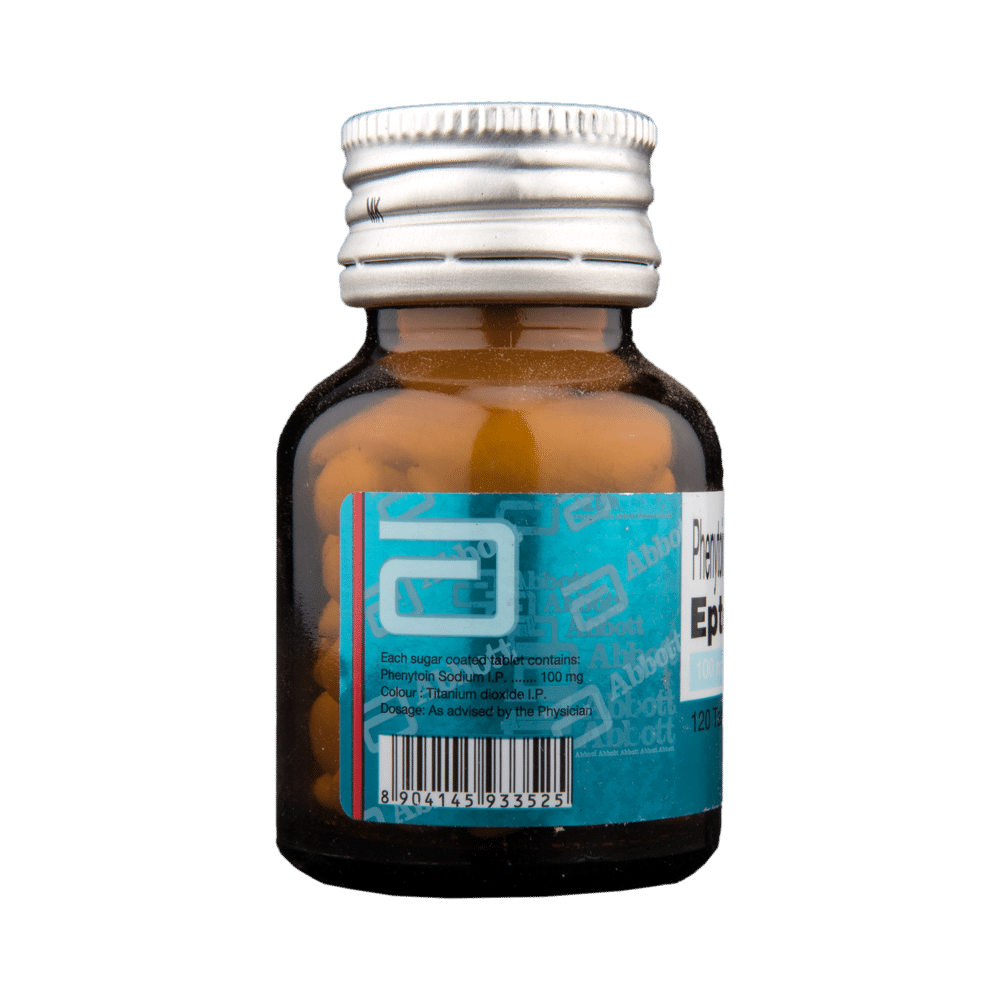
Eptolix 100mg Tablet
Manufacturer
Elixir Life Care Pvt Ltd
Salt Composition
Phenytoin (100mg)
Key Information
Short Description
Eptolix 100mg Tablet is a prescription medicine used to treat and prevent epilepsy (seizures) by decreasing the abnormal and excessive activity of the nerve cells in the brain.
Dosage Form
Tablet
Introduction
Eptolix 100mg Tablet is an antiepileptic medication used to treat and prevent epilepsy (seizures). It controls seizures by decreasing the abnormal and excessive activity of the nerve cells in the brain. It is important to take this medicine regularly as directed by your doctor to prevent seizures.
Directions for Use
Take this medicine in the dose and duration as advised by your doctor. Swallow it as a whole. Do not chew, crush or break it. Eptolix 100mg Tablet may be taken with or without food but it is better to take it at a fixed time.
How it works
Eptolix 100mg Tablet is an antiepileptic medication. It controls seizures or fits by decreasing the abnormal and excessive activity of the nerve cells in the brain.
Quick Tips
Take your medication regularly as directed by your doctor as missing doses can trigger seizures. Do not change the brand of your medicine and make sure that you have sufficient amount of medicine present with you. Some healthy tips to prevent seizures: Practice yoga every day. Get enough sleep at nighttime. Limit the use of screen time such as mobile/laptop. Take your medication on time. It may cause dizziness and sleepiness. Do not drive or do anything that requires mental focus until you know how it affects you.
Related Medicines

Epsolin 100 Tablet

Eptoin 100mg Tablet

Epidix 100 Tablet

Epitab 100mg Tablet

Epitin 100 Tablet

Epidium Tablet

Epipres 100mg Tablet

Eptoheal 100mg Tablet

Phenos 100mg Tablet

Oxotin 100mg Tablet
Frequently asked questions
How long does Eptolix 100mg Tablet stay in your system?
Eptolix 100mg Tablet typically remains detectable in the body for 5-6 days. This duration can vary from individual to individual, with some cases potentially showing a longer half-life of up to 9-10 days.
What happens if I stop taking Eptolix 100mg Tablet?
Sudden discontinuation of Eptolix 100mg Tablet can lead to seizures (status epilepticus), which is a life-threatening condition. It is critical to consult your doctor before stopping the medication entirely or reducing your dose. They will guide you through a gradual taper to minimize potential risks.
What are the symptoms of taking more than the recommended dosage of Eptolix 100mg Tablet? Can I die from an overdose?
Overdosing on Eptolix 100mg Tablet can cause various adverse effects, including jerky eye movements (nystagmus), difficulty speaking clearly (dysarthria), loss of balance, tremors, muscle stiffness or weakness, nausea and vomiting, lightheadedness, fainting, blurred vision, slow and shallow breathing, and even coma. Severe overdose can also lead to low blood pressure and respiratory problems, potentially resulting in death.
Who should avoid taking Eptolix 100mg Tablet?
Individuals with liver disease, particularly those experiencing pre-existing liver complications from prior use of Eptolix 100mg Tablet, should avoid this medication. Additionally, patients taking Delavirdine (used for HIV treatment) must refrain from using Eptolix 100mg Tablet as it can negatively impact the effectiveness of Delavirdine and lead to drug resistance.
Can I take Eptolix 100mg Tablet with ibuprofen?
Eptolix 100mg Tablet can be safely combined with ibuprofen without any known adverse drug interactions. However, a consultation with your doctor is recommended before combining these medications to ensure there are no potential interactions.
What are the effects of Eptolix 100mg Tablet on children?
Common side effects in children taking Eptolix 100mg Tablet include jerky eye movements (nystagmus) and overgrowth of the gums. Some children may experience changes in thinking or behavior, mood shifts, slowed or clumsy movements, or a decline in energy levels. These side effects can be minimized by gradually increasing the dosage.
Does Eptolix 100mg Tablet cause weight gain?
Eptolix 100mg Tablet has not been linked to weight gain. However, long-term use of higher doses might lead to unintentional weight loss. If you experience unexplained weight changes after starting or continuing this medication, please consult your doctor.
Does Eptolix 100mg Tablet make me sleepy?
Eptolix 100mg Tablet may cause drowsiness and somnolence. This side effect is expected, particularly during the initial weeks of treatment or after a dose increase. If you experience extreme sleepiness that significantly affects your daily activities, discuss this with your doctor. It may be necessary to delay driving or operating machinery until their ability to perform these tasks without undue impairment is established.
Does Eptolix 100mg Tablet affect birth control?
Eptolix 100mg Tablet can interfere with birth control pills (oral contraceptives). This interaction can reduce the effectiveness of oral contraceptives, potentially making them unreliable for contraception. It's vital to inform your doctor about potential interactions and discuss alternative contraception methods if needed.


